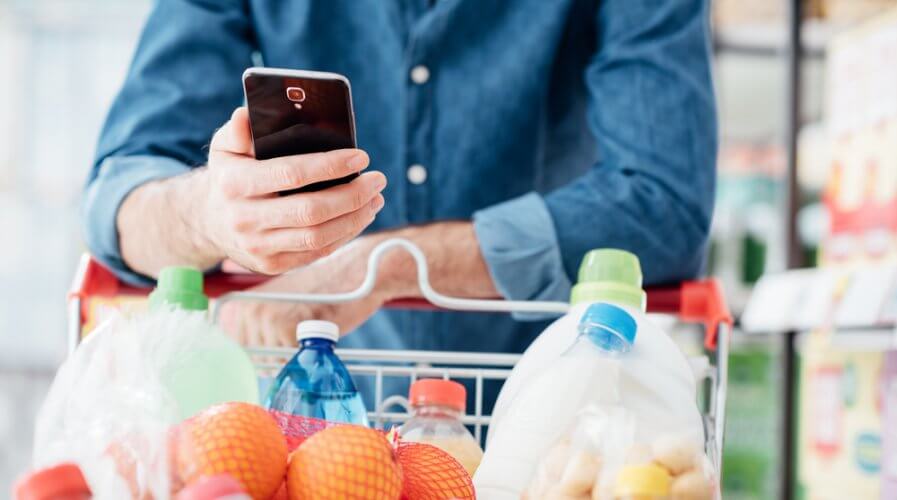
Online shopping in the Philippines is heating up. Source: Shutterstock.com
India now has its own version of the cashier-less store
INDIA-based supermarket chain HyperCity has opened two smart-shopping stores in Infosys’s head office campus in Hyderabad, a first for the South Asian country, which is en route to becoming a fully digital, cashless society.
Using Perpule’s 1Pay app, HyperCity patrons can scan the barcodes on each product as they shop, generating an invoice and once that is instantly paid, they can simply leave – no queuing needed, no awkward shoppers insisting their vouchers are valid, and no check-out assistants insisting they buy the latest offer.
The app supports multiple digital payment gateways and cards for self-checkout, including debit card, net banking, e-wallets and UPI systems.
According to Tech In Asia, HyperCity has been trialing Perpule’s self-checkout app in some of its stores across India for several months now. From its success, the supermarket chain took its partnership with the Bangalore-based startup a few steps further, opening the two cashier-less stores a few weeks ago.
Perpule launched earlier this year, successfully raising US$650,000 from Kstart, the seed funding arm of Indian VC firm Kalaari Capital. Its founders, Abhinav Pathak, Saketh BSV, Yogesh Ghaturle, and Sathyanarayanan R, realized there was potential in tech for offline retail, which remains big in India, and wanted to build a platform that would help shoppers skip queues with a much easier checkout system.
But getting the idea off the ground wasn’t so easy; they struggled to get existing store chains to see the potential of the app.
“Stores wanted to see enough traction and impact before they would be willing to pay commission,” Abhinav told Tech in Asia.
Their eureka moment came when they decided to offer the app as a replacement for the PoS (point of sale) systems currently used in stores. The built-in inventory management system would allow stores to keep track of products, replacements needed and new products, all in one place.
“Now they’re open to paying for Perpule, because they were anyway paying the PoS guys,” adds Abhinav.
With PoS systems built into the app, Perpule’s innovation is also becoming desirable outside of the convenience store sphere, and appealing to apparel retail as well as grocers.
Shoppers Stop are already on board and focused on acquiring knowledge and analytics from the digital footprint of the consumer in the store.
Using geomagnetic technology, the app can track when the shopper is spending time in the store, what they look at and for how long. This data can generate attractive offers for the customer and create brand loyalty.
In a nutshell, these staff-less stores marry the digital with the physical so consumers can get the best of both worlds.
Although the concept remains in its infancy, it is catching on. Amazon first trialed the automated Amazon Go grocery store in Seattle late last year. Earlier this year, Shanghai welcomed the opening of Bingobox’s staff-less convenience stores. The Bingobox stores are much like big vending machines that you can walk around. Shoppers scan a QR code to enter the store, scan items to buy, and pay via the app, then simply scan the QR code to leave.
In July, Chinese e-commerce giant Taobao debuted the Tao Cafe, a pop-up cashier-less cafe where patrons scan their phones at the door, grab what they want and then get billed on their phones later.
READ MORE
- Ethical AI: The renewed importance of safeguarding data and customer privacy in Generative AI applications
- How Japan balances AI-driven opportunities with cybersecurity needs
- Deploying SASE: Benchmarking your approach
- Insurance everywhere all at once: the digital transformation of the APAC insurance industry
- Google parent Alphabet eyes HubSpot: A potential acquisition shaping the future of CRM






